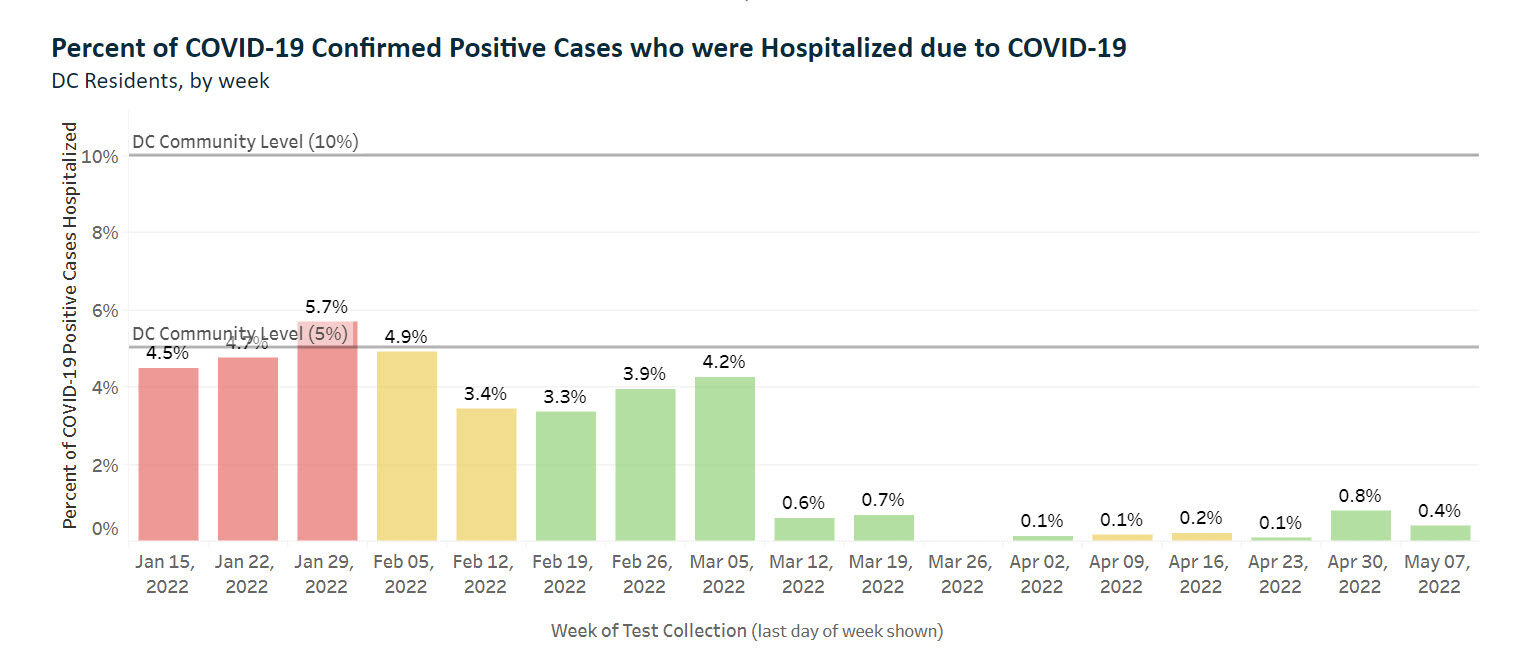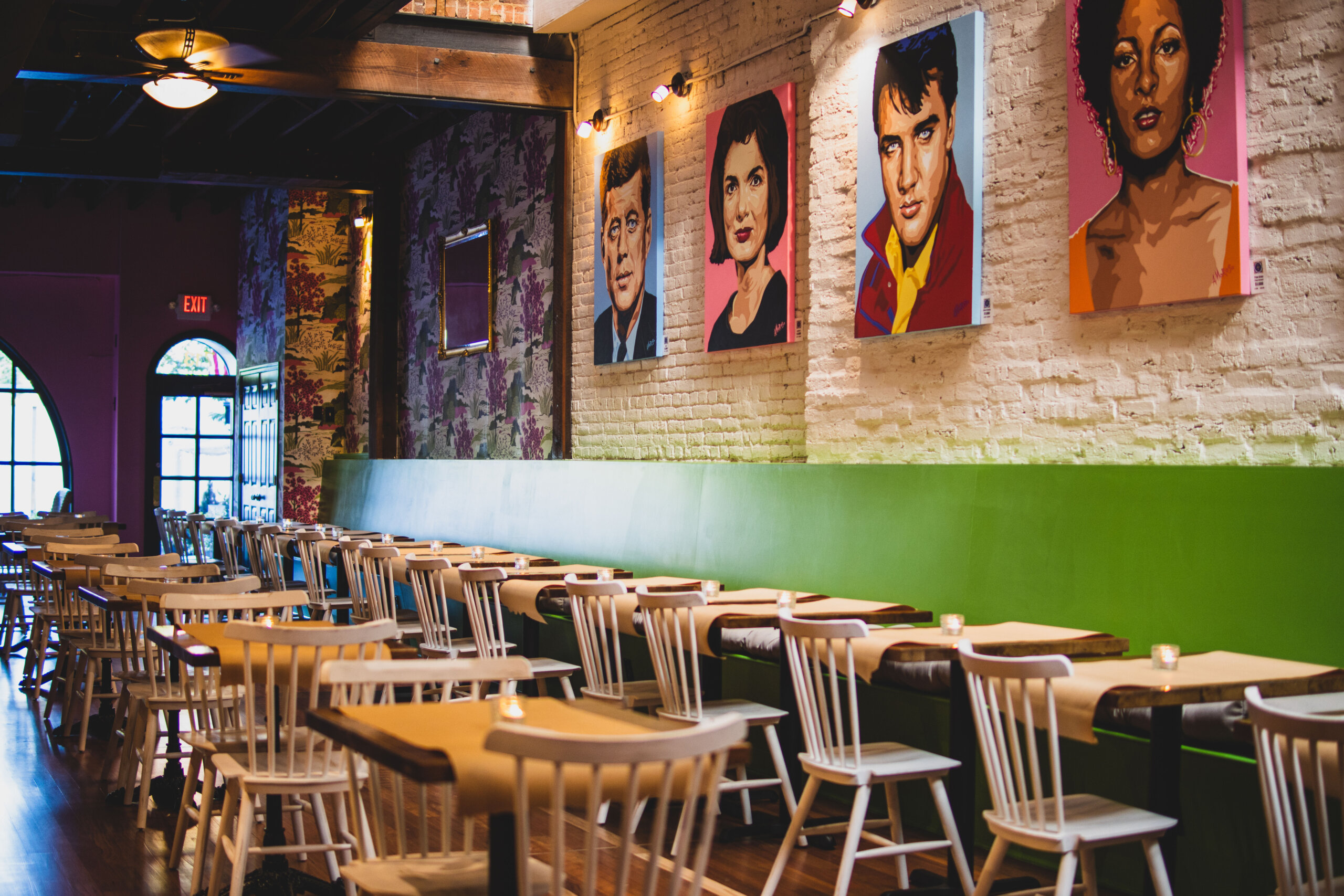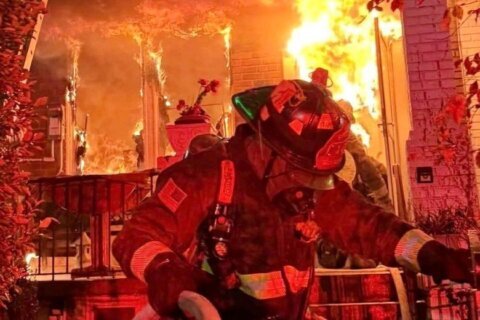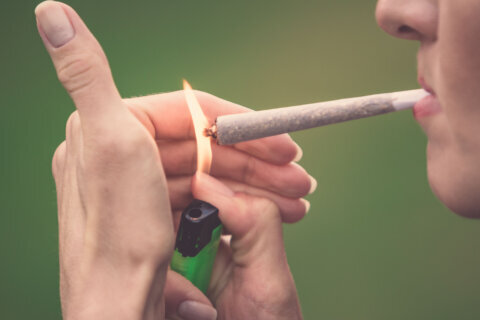COVID-19 may be moving into a more manageable phase, but some D.C. businesses are keeping their pandemic-era protocols alive for the foreseeable future.
“As long as (hospitalizations and cases) are still going up and down, and up and down, I’m comfortable with keeping policies that we have in place,” said Cathy Nagy, the general manager for Mr. Henry’s, in Southeast.
Proof of vaccination is still required at the Capitol Hill pub along Pennsylvania Avenue, a policy that Mr. Henry’s has maintained for indoor diners since August of last year, Nagy said.
Right around the corner on 8th Street Southeast, Crazy Aunt Helen’s has also kept its vaccine requirement and just recently dropped its mask requirement for guests and employees.
The American comfort food restaurant only opened last July, and owner Shane Mayson implemented both policies when he said his business tanked a month into its existence due to concerns over the Delta variant.
Ever since then, Mayson has maintained his vaccine policy for patrons.
The state of COVID
By all metrics, coronavirus cases, hospitalizations and deaths are at some of their lowest levels in the District.
As of May 7 — the last recorded date in D.C.’s COVID dashboard — even as the city has seen a slight uptick in cases over the past month, the percentage of people who were hospitalized due to their COVID-19 infection is at just 0.4%.

From Feb. 20 until April 22, the seven-day average of deaths from COVID rounded down to 0 in the District, according to the Centers for Disease Control and Prevention. From April 26 to April 29, the seven-day average in deaths briefly bumped up to 1 before going back down to 0, where it has remained since.
Cases have fluctuated during this time. For a two-week period at the beginning of April, the case positivity rate in D.C. went above the 2% threshold established by the CDC, upgrading D.C. from a “low” level of community transmission to a “medium” level, but it went down later in the month.
In its weekly report on COVID on May 13, the CDC said that while cases and hospitalizations are on the rise nationwide, deaths continue to decrease.
End in sight?
D.C.’s most recent pandemic restrictions seemed to come and go as quickly as omicron.
The District brought back its indoor mask mandate for a third time at the end of December and required proof of vaccination for certain businesses by mid-January. A month later, Mayor Muriel Bowser announced the end of the vaccine requirement, and on March 1 she dropped the indoor mask mandate.
But the businesses WTOP talked with haven’t been in a hurry to set their own end date.
“It’s definitely not a set schedule,” Nagy said about how often she looks into continuing Mr. Henry’s vaccine requirement. “It really has a lot to do with what’s out in the news.”
For Mayson, the owner of Crazy Aunt Helen’s, “I don’t really have a barometer of what (normal) looks like yet,” he said.
Mayson did say that if D.C. were to drift back into a level of medium community transmission, his staff would resume wearing masks again, but would not require it of patrons.

Although their general attitude is, what’s the rush? It hasn’t hurt their bottom line.
“I would say we had a little uptick as soon as we put that requirement of proof of vaccination in place,” Mayson said.
He mentioned that the overwhelming response from patrons is that they appreciate it, especially the ones with kids who aren’t yet eligible to be vaccinated.
Nagy said separately that usually anyone over 30 was in favor of their vaccine requirement.
She pointed out that they’ve gotten some new regulars from their requirement. Nagy said one regular frequents Mr. Henry’s now because his old watering hole didn’t do vaccine checks.
“We also have live music program, and it’s kind of tough for a musician to sing with a mask on or performing other with other instruments,” Nagy said. “So we adopted it then, and have had nothing but really great response.”
Crazy Aunt Helen’s had a COVID outbreak among its employees, which caused the restaurant to close down for a week last December. The entire staff was fully vaccinated and masked while at work, but it still wasn’t enough to blunt omicron’s spread.
But Mayson said that the variant’s ability to evade his mitigation strategies didn’t mean that there was any less reason to drop the requirement for customers.
“It’s really just about security and health, and being a little overly cautious. But I’d rather be overly cautious than underestimate,” Mayson said.








